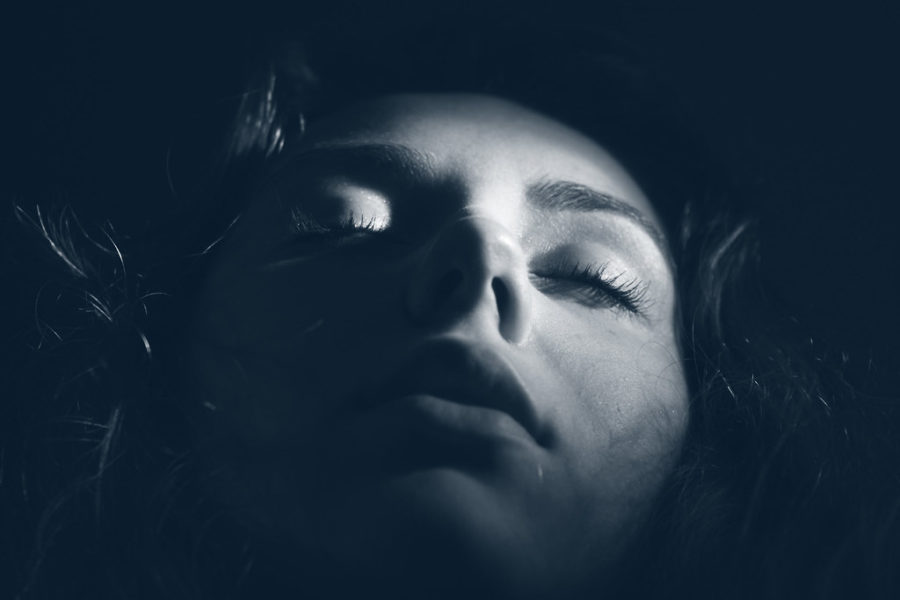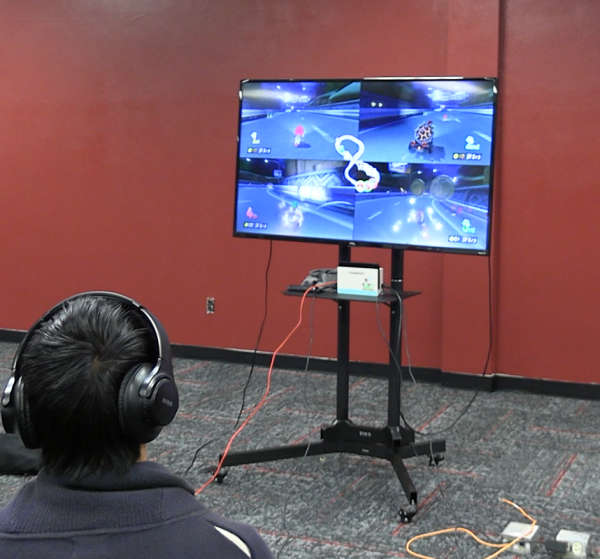What Are Dreams?
Dreaming/Eflon/Flickr/CC BY 2.0
People spend one third of their lives sleeping. In order to maintain good health and wellbeing throughout ones life, sleep is essential.
Laying down to take a nap, the brain begins to play pictures in its mind, creating either dreams so sweet or nightmares so bitter. Dreaming can be a paradise for some and a wasteland for others. It seems to make no sense.
Laura Morgan, a biology teacher, expresses how she thinks dreaming works.
“The brain is whack,” Morgan said. “Constantly rearranging pathways and reorganizing information, the ultimate hard drive. I think we dream because our metabolic pathways are not distinct from one system to another. Some parts of the brain are always doing work.”
The current theory says that dreams function as a “rehearsal” for numerous obstacles and events that one encounters throughout the day, helping to solidify and analyze memories. The pioneer of psychoanalysis, Austrian neurologist Sigmund Freud, held the view that the unconscious uses dreams as a means of resolving suppressed or undesired emotions, experiences, and violent tendencies.
“I think dreams are part of our subconscious,” English teacher Julien Gaumer said. “I believe, sometimes they could manifest from fears or thoughts, and at other times they can be completely random.”
Freud believed that every dream had significance, regardless of how absurd it may seem or how little of it is recalled. Every aspect of the dream is symbolic, but these symbolic meanings are only revealed through the dreamer’s associations. Free association was the term for his approach. Freud came to the notion that dreams are the cloaked fulfillment of repressed infantile wishes as a result of the free association technique.
“The interpretation of dreams is the royal road to a knowledge of the unconscious activities of the mind,” Freud said.
Nathalia Hernandez expressed how she feels about dreams and their meanings.
“Dreams have a meaning behind them because they tend to be caused by personal conflicts and emotions,” Nathalia Hernandez said. “If they don’t have meaning, then why do they get affected by what goes on in our day-to-day lives?”
Dreams are similar to novels or daydreams where the hero triumphs in the end and gets what they want. Dreams occasionally repeat themselves and can make no sense whatsoever.
“I have had two long-term repeating dreams that went on until I figured out what I was processing,” Morgan said. “ Then, they stopped. The first started when I was very young, maybe three or four years old. This was a vivid dream about being attacked by crocodiles all around my bed. I would eventually escape by flying down the hall and to the family room.”
One might think these dreams make no sense at all but in reality aspects of these dreams are quite common. According to Shut Eye, many people may have dreams about flying, in which they could feel free and escape from people, places, or things that oppress them. Since it’s difficult for people in today’s society to escape the minutiae of life, having a dream of flying frequently represents their inner desire for freedom.
“The second dream was lucid,” Morgan said. “It was about needing to use the restroom while in a public place and all the stalls were dirty or lacking doors.”
Another common dream is needing to use the bathroom but having no privacy to do so. One can interpret this as fearing how others see them or having unresolved issues that one must flush away. Though dreams like this could also be a lot simpler. One could simply have to relive themselves and their brains are sending the signals to get them to go.
“I believe they have reasons,” Morgan said. “I am not sure meaning is the best description. For instance, when I figured out that the restroom dream only happened when I really needed to wake up and go, the dream stopped. Now, I just wake up and go.”
Hernandez shares one of their more vivid dreams.
“I’ve had dreams where I ‘wake up’ but am actually still dreaming,” Hernandez said. “The dream itself was about this spirit-like lady with a blue tint of an aura telling me, ‘Hurry up, they are coming for you. You have to leave before it’s too late!’ I would ‘wake up’ but see the lady again over and over again but with a different messed up face.”
This is a typical sleep occurrence called a false awakening. False awakenings frequently happen for no apparent reason, but they can also be brought on by a few different things. When hyperarousal, or greater attention, during REM sleep prevents a person from having more common dreams, including those involving flying, falling, and other surreal events, false awakenings may occur. Instead, the dreams might draw on more precise memories of your everyday activities and familiar locations.
There are other types of dreams. Dreams that cause people to wake up in a cold sweat. These more negative dreams are referred to as nightmares.
A nightmare, according to Mayo Clinic, is an unsettling dream that wakes a person up and is linked to unpleasant emotions like fear or worry. Children frequently experience nightmares, but anyone can experience them. Typically, occasional nightmares are nothing to be concerned about. These nightmares can be caused by many factors. Stress, lack of sleep, trauma, medications, substance misuse, certain health disorders, or simply scary movies/books all can cause nightmares.
Hernandez used to have nightmares often when they were younger.
“I rarely have these nightmares anymore, but they used to be so common,” Hernandez said. “These dreams and nightmares tended to affect my day-to-day life. If I had a nightmare, I would have no energy to start and go about my day.”
Positive and negative dreams can affect day-to-day living claims Advanced Sleep Medicine Services, Inc. Often occurring nightmares can make it difficult for someone to fall asleep, which can lead to daytime tiredness. A person’s ability to process the good feelings of others can be helped by dreaming, which raises their level of social competence.
In certain circumstances, sleep can be interrupted by substances such as alcohol, medications and mental health conditions. This interruption in sleep can cause dreaming to not occur. There are a few things that may help dream recollection, not dreaming on its own is not a cause for concern.
The majority of people do dream, they just don’t remember them. People don’t recall their dreams since the information can’t be accessed while awake. In terms of general health, forgetting dreams is seen as perfectly normal. The majority of the time, our dreams are swiftly forgotten.
“I do tend to think some dreams could have meaning, but then I also think we could be so perplexed if we analyzed every dream as if it did,” Gaumer said. “We may never know the full complexity of dreams and if they have meaning.”
Your donation will support the student journalists of Logansport High School. Your contribution will allow us to purchase equipment and cover our annual website hosting costs.

Freshman Maddison Sell (all pronouns) is a reporter and a member of the class of 2026. She joined Magpie their freshman year (2022-23). One of his favorite...











